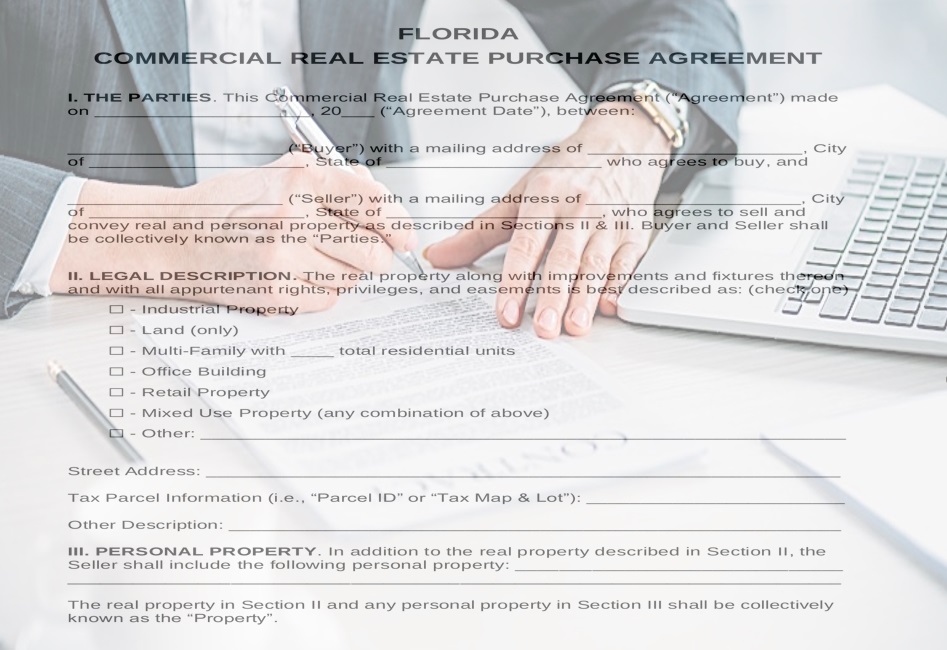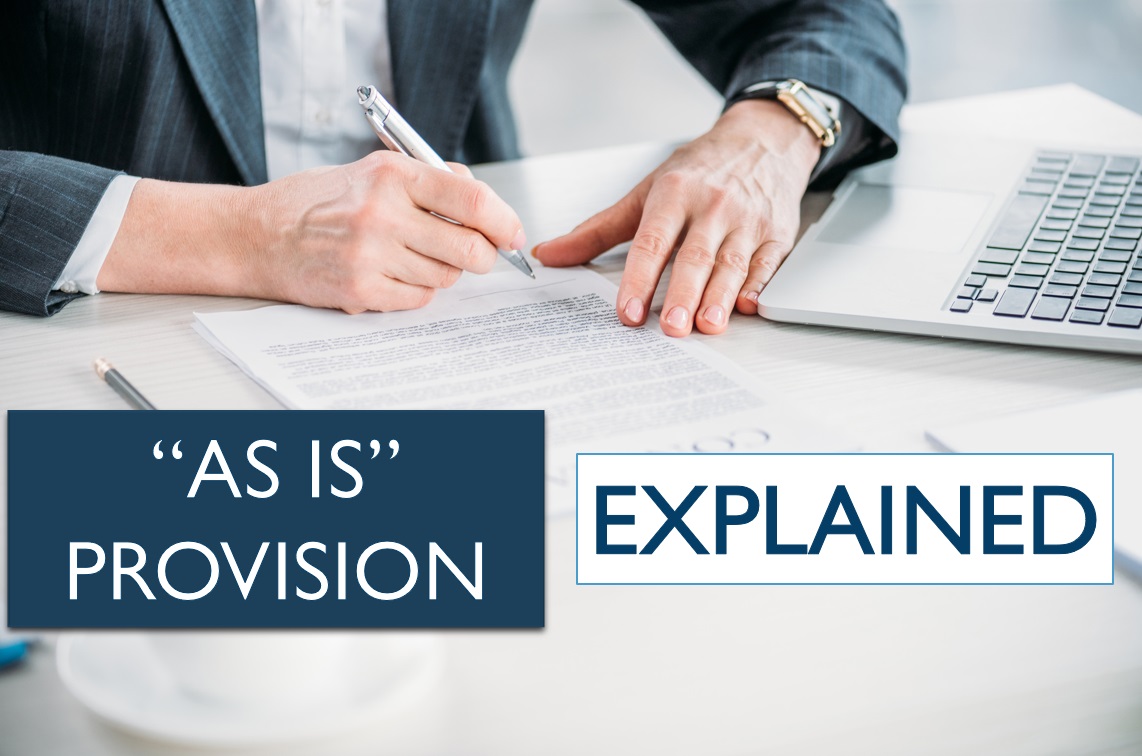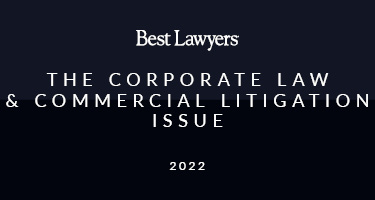What is a Florida Commercial Real Estate Contract?
A Florida commercial real estate purchase and sale agreement specifies the terms and conditions for the sale of commercial real estate between a seller and purchaser. Such terms and conditions include, but are not limited to, the sale price, financing, insurance, titles and deeds, property condition, closing date, default provisions, termination options, and representations and warranties. Depending upon the type of commercial property for sale, there may be more specific items stipulated in the real estate contract concerning title insurance, zoning ordinances, and environmental reports studies.
There are provisions within the contract for real estate agents who broker, or bring together, the deal. For example, if there is a real estate agent that represents either the seller or the purchaser, that agent must complete a Single Agent Disclosure form. If there is one real estate agent who assists both the purchaser and the seller, that agent must execute a Transaction Broker Disclosure Form.
Why is a Commercial Real Estate Contract Important?

A commercial real estate contract is important because it helps to protect both parties from legal action as well as ensure both the buyer and the seller comply with any zoning laws or ordinances or any environmental studies required for the property.
What is the importance of specifying the property description in a Commercial Real Estate Contract?
The property description section of the contract clearly lays out what is being bought. A description of the property will include the address and specific legal description .In addition, property that is also being purchased such as any improvements or built in-equipment which would be reflected in the price including property that is not necessarily built into the property such as furniture and machinery.
What is Due Diligence?
Due Diligence simply means that the purchaser should investigate the potential commercial property of interest prior to signing the contract. By performing due diligence, the purchaser ensures that (s)he is aware of all material facts concerning the property. The type of due diligence performed depends upon the commercial property itself and the use of that property. The level of due diligence may, for example, be different if the purchaser is interested in the commercial property for investment only as opposed to actually using the property.
Top Ten Due Diligence Questions
While the following questions do not encompass all due diligence issues, prior to signing the commercial real estate contract, a purchaser should obtain answers including:
- What is the real property being purchased? Aside from the legal description, street address, and parcel identification number, the purchaser should obtain information as to the size of the building, and fixtures that may be removed from the property prior to closing.
- Are there any development rights or obligations regarding the property?
- What is the physical condition of the property? Having an inspector and surveyor visit the site provides useful information as to whether the purchaser will proceed with the contract or will provide leverage to negotiate the contractual terms.
- Is there a zoning or land use issue? A purchaser must know if the property will be able to be used for its intended purpose. Zoning and land regulations may change with time; as a result, a purchaser must not assume that the seller’s use of the property will remain over time.
- Are there any major renovations and/or improvements that will have to be made to the property? And, if so, what is the cost?
- Is there sufficient parking for the intended use of the property?
- Are there any potential title issues? An initial title search will indicate whether there are any judgments, liens, or mortgages on the property.
- Are there any open permits? An open permit is a title issue as any work that should be completed on the property must be completed prior to the closing.
- Are there any easement or encroachment issues? A survey will specify easements and/or encroachments relating to the property.
- Are there any environmental issues? An environmental study, a right granted to and paid for by the purchaser, is obtained to determine if there is any contamination surrounding the property which may become a liability. A commercial real estate contract will clarify the right of the buyer to perform an initial environmental assessment as well as under what conditions a more in-depth environmental assessment is required.
What is an As-Is Provision?

The “As-Is” section of a contract states that the buyer will buy the property in the condition they found it to be in after all the inspections and studies were done, which protects the seller by ensuring the purchaser accepts the condition of the property prior to the closing. The seller’s representations and warranties guarantee the purchaser that, to the seller’s knowledge, there is no pending litigation or conflict on the property; however, these warranties and representations are only valid for a certain period of time after the closing. After what is known as the survival period, the seller no longer guarantees that there is no litigation or conflicts on the property, opening the buyer to possible liabilities after buying the commercial property.
Real estate transactions are delicate matters that benefit greatly from a well-drafted contract by real estate attorneys. A contract can set in writing the expectations from both parties so that the transaction can go forward smoothly. In the case the transaction does not go as planned, the contract will always work as an instrument to help resolve a dispute. If you need assistance drafting a contract for a future sale or purchase, please reach out to us so we can assist you. Please call us at (954) 384-6114 or email us at contactus@oppenheimlaw.com so we can assist you.
originally posted at: https://www.oppenheimlaw.com/why-is-a-commercial-real-estate-contract-important/































